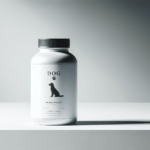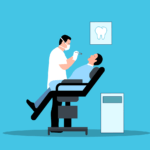
Welcome to “What Medical Care Should a Dog Owner Provide for Their Pet?” In this article, you’ll discover the essential aspects of canine health and well-being that every responsible dog owner should know. From routine veterinary visits to ensuring a nutritionally balanced diet, providing your furry friend with the best care involves multiple layers of attention. We’ll guide you through the importance of vaccinations, regular dental cleanings, and choosing the right dog health products, including joint and skin supplements, fatty acids, and natural remedies that support optimal health. By understanding and fulfilling your dog’s medical needs, you help ensure they live a happy, healthy life by your side. Have you ever wondered what kind of medical care you should be providing for your furry friend to ensure they live a long, happy, and healthy life? As a responsible dog owner, it’s crucial to understand the different aspects of veterinary care that your dog needs. From vaccinations to nutrition and everything in between, here’s a comprehensive guide on what medical care you should provide for your pet.

Regular Veterinarian Visits
Why Routine Check-ups Are Important
Routine veterinarian check-ups are critical for catching potential health issues early. Just as humans should visit their doctors for annual exams, dogs depend on these visits to stay in tip-top shape. These visits provide a comprehensive assessment of your dog’s health, including their weight, ears, eyes, teeth, skin, and overall condition.
How Often Should You Visit the Vet?
- Young Dogs: Puppies benefit from more frequent visits, typically every few weeks during their early months for vaccinations and wellness checks.
- Adult Dogs: Annual visits are generally sufficient unless your pet has specific health concerns.
- Senior Dogs: Older dogs often require semi-annual check-ups due to age-related health issues.
Essential Vaccinations
Core Vaccinations
Certain core vaccinations are necessary for all dogs to protect against severe or life-threatening diseases.
| Vaccination | Purpose |
|---|---|
| Rabies | Protects against the rabies virus, which is often fatal. |
| Distemper | Prevents a highly contagious and serious viral illness. |
| Parvovirus | Shields against a highly contagious virus causing gastrointestinal issues. |
| Canine Hepatitis | Protects the liver from a viral infection. |
Non-Core Vaccinations
Depending on your dog’s lifestyle and environment, non-core vaccinations may also be recommended.
| Vaccination | Suitable For |
|---|---|
| Bordetella | Dogs that frequently socialize (e.g., dog parks, boarding). |
| Lyme Disease | Dogs in areas where tick exposure is high. |
| Leptospirosis | Dogs at risk of exposure to contaminated water or soil. |
Balanced Nutrition
Choosing the Right Dog Food
A balanced diet is fundamental for any dog’s health. The type of food you choose should be tailored to your dog’s age, breed, and health status. Look for a complete and balanced diet approved by veterinary associations.
Supplements for Enhanced Health
Joint Health Supplements
As dogs age, joint health can deteriorate, making it essential to include supplements like glucosamine and chondroitin to support cartilage and joint function.
Omega-3 Fatty Acids
Omega-3 fatty acids are beneficial for maintaining a healthy coat and skin, reducing inflammation, and supporting overall health. Common sources include fish oil supplements.
Probiotics
Probiotics aid in digestive health and support robust immune systems. They can be especially beneficial for dogs with bowel issues.
| Supplement | Purpose |
|---|---|
| Glucosamine & Chondroitin | Supports joint health and mobility. |
| Omega-3 Fatty Acids | Maintains healthy skin and coat, reduces inflammation. |
| Probiotics | Aids in digestion and boosts the immune system. |
Dental Health
Importance of Dental Cleanings
Dental health is often overlooked but is crucial for your dog’s overall well-being. Regular dental cleanings can prevent tooth decay, gum disease, and even more severe health problems like heart disease.
Home Dental Care
Aside from professional cleanings, maintaining your dog’s dental health at home is vital. Using dog-specific toothpaste and dental chews can help prevent plaque buildup and maintain oral hygiene.

Regular Exercise and Mental Stimulation
Physical Exercise
Exercise is essential for maintaining a healthy weight and promoting cardiovascular health. The amount and intensity of exercise will vary based on the dog’s age, breed, and health.
Mental Stimulation
Mental stimulation is equally important. Puzzles, interactive toys, and training sessions can keep your dog’s mind sharp and reduce behavioral problems.
Parasite Prevention
Flea and Tick Control
Regular flea and tick preventative treatments are essential to protect your dog against parasites that can cause severe health issues or transmit diseases.
Heartworm Prevention
Administering heartworm preventative medication can safeguard your dog from heartworm disease, which can be fatal if left untreated.

Recognizing Health Issues
Common Signs of Health Problems
It’s essential to recognize signs that your dog may be experiencing health issues. Keep an eye out for symptoms like:
- Changes in appetite or weight
- Excessive drinking or urination
- Lethargy or reduced activity
- Unusual lumps or bumps
- Difficulty breathing or coughing
- Persistent diarrhea or vomiting
When to Contact the Vet
If you notice any of these signs or other unusual behavior, consult your veterinarian immediately. Early diagnosis and treatment can significantly improve health outcomes.
Senior Dog Care
Special Considerations for Older Dogs
Senior dogs have unique health needs, often requiring more frequent veterinary visits and specialized care. This may include joint supplements, diet adjustments, and monitoring for age-related diseases like arthritis or diabetes.
Mobility Aids
For dogs experiencing joint pain or decreased mobility, consider using ramps, orthopedic beds, or harnesses to maintain their comfort and quality of life.
Alternative and Holistic Care
Natural Remedies and Supplements
Some dog owners opt for natural remedies and supplements to support their pet’s health. These can include herbal treatments, acupuncture, and massage therapy. Always consult your vet before starting any alternative treatments to ensure they are safe and effective.
Organic Health Products
Organic dog health products are becoming increasingly popular. These products often contain fewer chemicals and additives, making them a healthier option for your pet.
Behavioral Health
Importance of Routine and Training
A well-behaved dog is not only a joy to be around but also tends to be healthier. Regular training and a consistent routine can prevent behavioral issues and ensure a strong owner-pet relationship.
Socialization
Socialization is crucial for mental and emotional health. Make sure your dog has opportunities to interact with other dogs and people to develop good social skills.
Importance of Spaying and Neutering
Health Benefits
Spaying and neutering can prevent various health problems, including certain cancers and infections. Moreover, it also helps control the pet population, reducing the number of homeless animals.
Emergency Preparedness
First Aid Kit
Being prepared for emergencies is crucial. Having a first aid kit on hand, equipped with items like bandages, antiseptic wipes, and tweezers, can be invaluable in a crisis.
Knowing When to Seek Immediate Help
Understanding when to seek immediate veterinary care can be lifesaving. Situations such as severe bleeding, difficulty breathing, or ingesting toxic substances require prompt medical attention.
Conclusion
As a dog owner, providing comprehensive medical care for your pet ensures they lead a healthy, fulfilling life. From routine check-ups and essential vaccinations to specialized nutrition and dental care, there are several vital aspects to consider. Regular exercise, mental stimulation, and preventive measures like parasite control also play pivotal roles. By recognizing signs of potential health issues, catering to the specific needs of senior or special-needs dogs, and being prepared for emergencies, you can be the best caregiver for your furry friend.
Remember, you’re not alone on this journey. Always consult your veterinarian to tailor a health plan that suits your dog’s unique needs. Here’s to many happy, healthy years with your canine companion!







